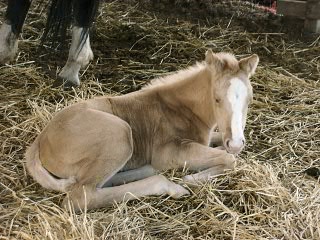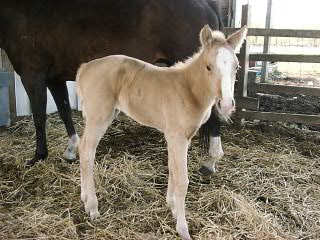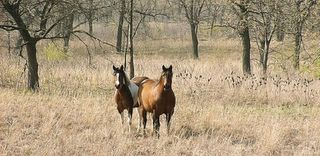Green Acres
My weekends are usually predictable, regardless of what city they happen to find me in. Gym, a movie, brunch, try to dine out at least once, a good college football or basketball game and reading. Lots of reading. In New York, there is much more dining out and going out. Back home in Chicago, there is more QT with old friends and family. Now, there is time with some new friends like Tickles (above and below).
Tickles is my sister's newest filly, a little over a year old. By now you're probably saying, "Hmm. Chicago's a huge metropolis, where does she keep the horse? Lincoln Park Zoo?"
Not at all. She owns some land about 90 minutes south of the city center, near Kankakee. It's not much, about 16 acres, mostly pasture, woods and a few ponds. In addition to the filly, there are six or seven quarter horses. Sis has bred and groomed horses for some years, so most weekends are spent "in the country." Just saying those three words sounds so Martha, right? But here's a surprise: there are a number of black farmers in Kankakee County, so it's not uncommon to see brothaz and sistaz with horses, cattle and crops.
My first visit was last year. Remember Eva Gabor's bars from the Green Acres theme song? New York is where I'd rather stay/I get allergic smelling hay/I just adore a penthouse view/Darling, I love you, but give me Park Avenue." [Click here to hear the theme song in Real Audio.]
That was me. But times, circumstances and the relationship with my family has changed. Today I look forward to the trips. The change in lifestyle is like night and day; no TV, no laptop, sometimes you can't even get a signal on your cellular. The pasture is just that ... pasture. There is woods, fencing, ponds, and not much more. There's an intense connection with nature here because simple things that usually are taken for granted must be produced.
For instance: water for the horses. First, we have to bring a pump, and remember to fill it with gas before arriving, or else it's another 15 minute drive to the nearest town. Then, the pump must be rigged to the well. Next, heavy-duty water hoses are brought from the trailer and connected to the pump. The hoses are strung forty or fifty feet into the water troughs. If it’s a cold day—like it was over the weekend—the hoses may be frozen. The ice has to be broken by hand; if it's thick, we bring the hoses into the truck and blast the heater. Then there's getting the hay and feeding ...
You get the idea, right? Hard work, but a welcome change from the clubs, the remote control and usual weekend fare.







